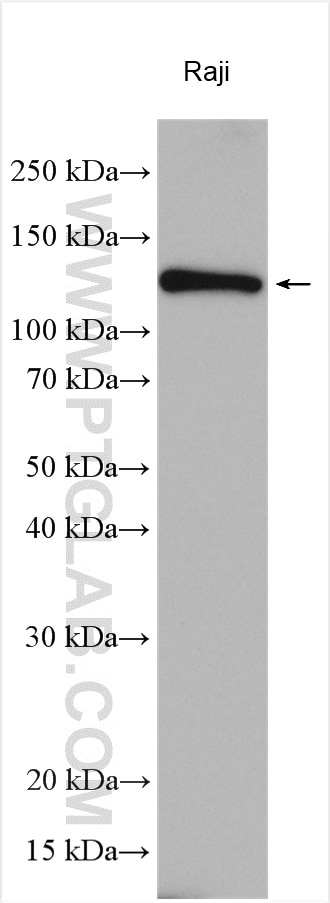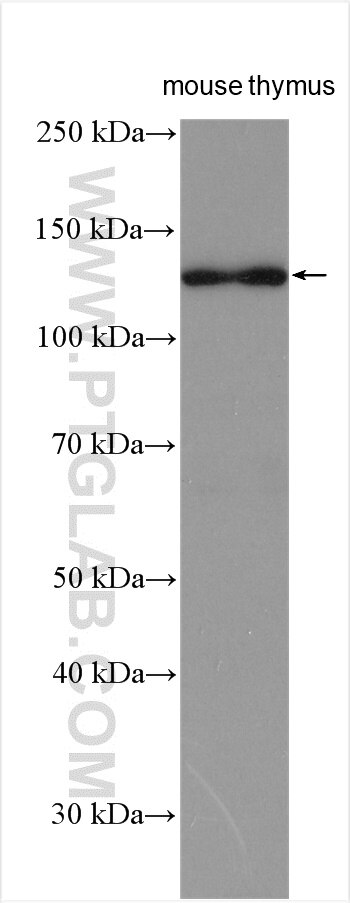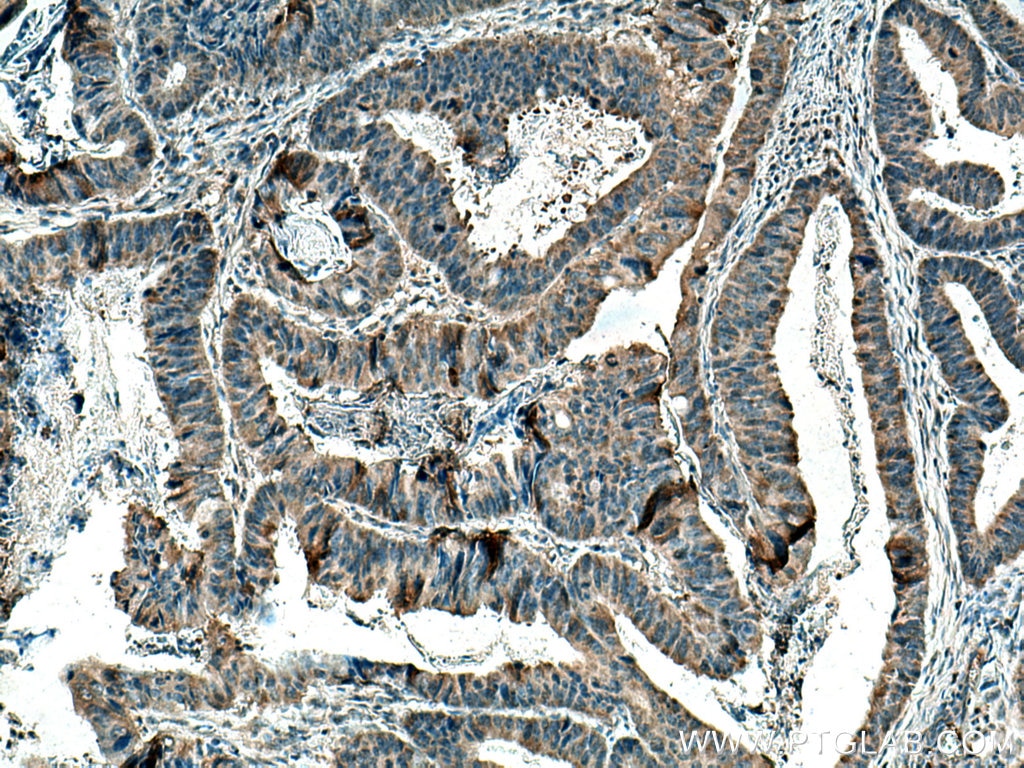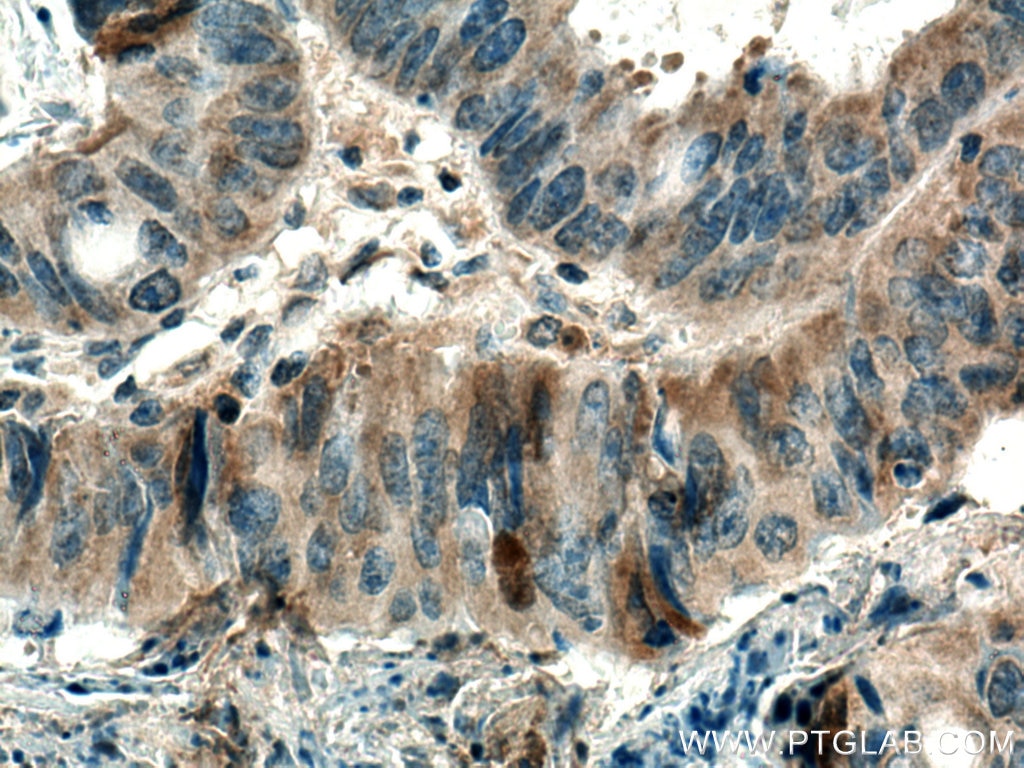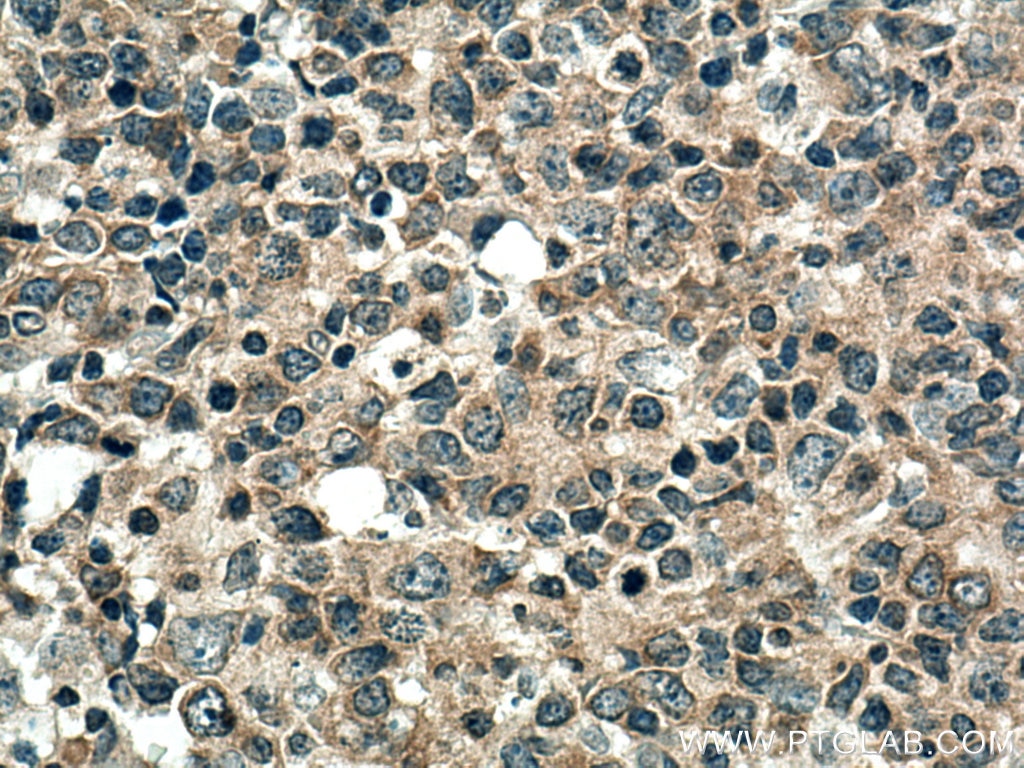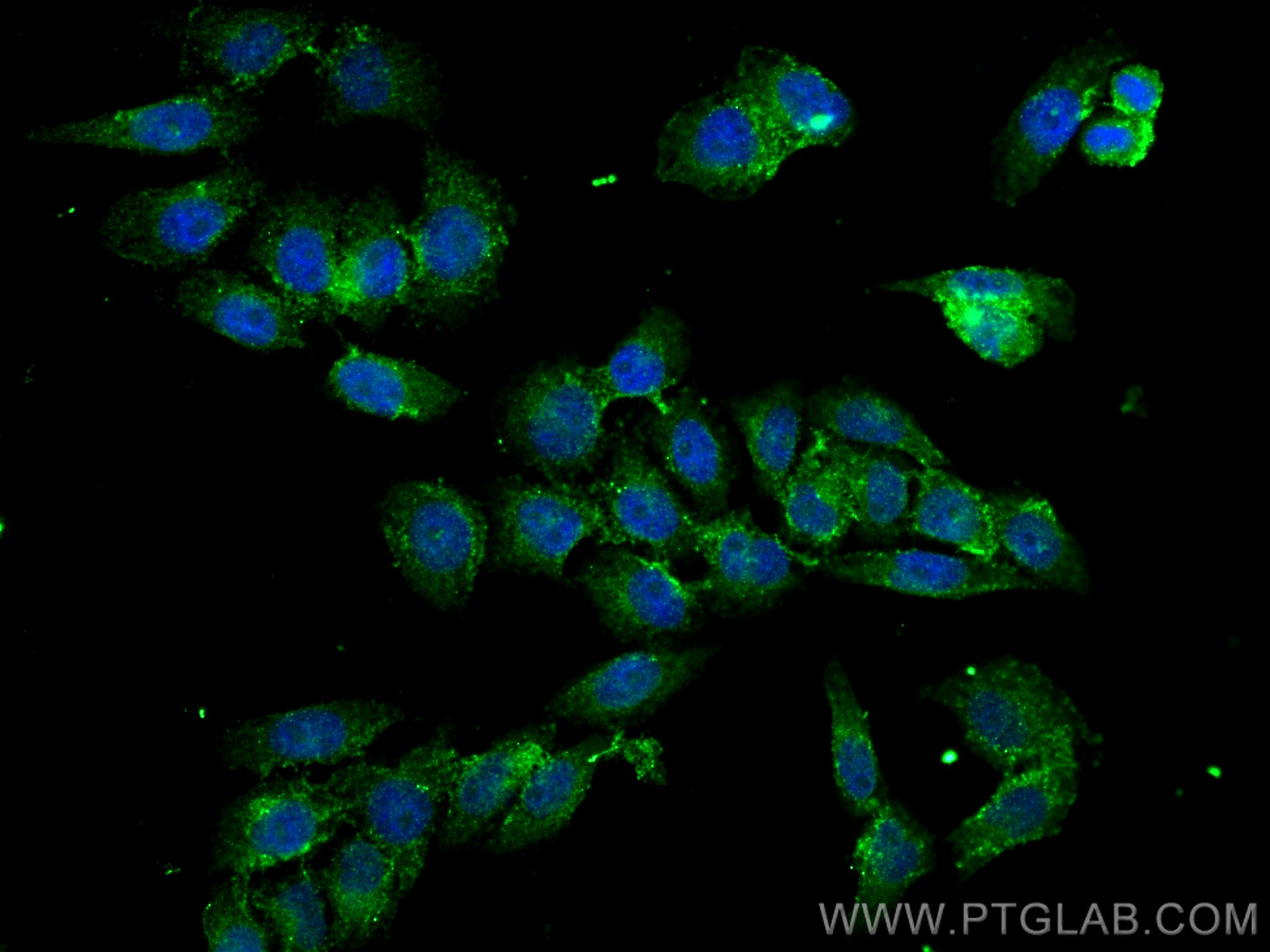CARD11 Polyklonaler Antikörper
CARD11 Polyklonal Antikörper für WB, IHC, IF/ICC, ELISA
Wirt / Isotyp
Kaninchen / IgG
Getestete Reaktivität
human, Maus, Ratte
Anwendung
WB, IHC, IF/ICC, ELISA
Konjugation
Unkonjugiert
Kat-Nr. : 21741-1-AP
Synonyme
Geprüfte Anwendungen
| Erfolgreiche Detektion in WB | Raji-Zellen, Maus-Thymusgewebe |
| Erfolgreiche Detektion in IHC | humanes Kolonkarzinomgewebe, humanes Lymphomgewebe Hinweis: Antigendemaskierung mit TE-Puffer pH 9,0 empfohlen. (*) Wahlweise kann die Antigendemaskierung auch mit Citratpuffer pH 6,0 erfolgen. |
| Erfolgreiche Detektion in IF/ICC | L02-Zellen |
Empfohlene Verdünnung
| Anwendung | Verdünnung |
|---|---|
| Western Blot (WB) | WB : 1:500-1:1000 |
| Immunhistochemie (IHC) | IHC : 1:50-1:500 |
| Immunfluoreszenz (IF)/ICC | IF/ICC : 1:50-1:500 |
| It is recommended that this reagent should be titrated in each testing system to obtain optimal results. | |
| Sample-dependent, check data in validation data gallery | |
Veröffentlichte Anwendungen
| WB | See 5 publications below |
| IF | See 3 publications below |
Produktinformation
21741-1-AP bindet in WB, IHC, IF/ICC, ELISA CARD11 und zeigt Reaktivität mit human, Maus, Ratten
| Getestete Reaktivität | human, Maus, Ratte |
| In Publikationen genannte Reaktivität | human, Maus |
| Wirt / Isotyp | Kaninchen / IgG |
| Klonalität | Polyklonal |
| Typ | Antikörper |
| Immunogen | CARD11 fusion protein Ag16468 |
| Vollständiger Name | caspase recruitment domain family, member 11 |
| Berechnetes Molekulargewicht | 1154 aa, 133 kDa |
| Beobachtetes Molekulargewicht | 133 kDa |
| GenBank-Zugangsnummer | BC111719 |
| Gene symbol | CARD11 |
| Gene ID (NCBI) | 84433 |
| Konjugation | Unkonjugiert |
| Form | Liquid |
| Reinigungsmethode | Antigen-Affinitätsreinigung |
| Lagerungspuffer | PBS with 0.02% sodium azide and 50% glycerol |
| Lagerungsbedingungen | Bei -20°C lagern. Nach dem Versand ein Jahr lang stabil Aliquotieren ist bei -20oC Lagerung nicht notwendig. 20ul Größen enthalten 0,1% BSA. |
Hintergrundinformationen
CARD11 also named as ,BIMP3 or CARMA1, is a 1154 amino acid protein, which contains one PDZ domain, one guanylate kinase-like domain, and one CARD domain. CARD11 localizes in the cytoplasm and co-localized with DPP4 in membrane raft. CARD11 is detected in adult peripheral blood leukocytes, thymus, spleen and liver. CARD11 also is found in CARD11 promyelocytic leukemia HL-60 cells, chronic myelogenous leukemia K-562 cells, Burkitt's lymphoma Raji cells and colorectal adenocarcinoma SW480 cells. CARD11 is involved in the co-stimulatory signal essential for T-cell receptor mediated T-cell activation.
Protokolle
| PRODUKTSPEZIFISCHE PROTOKOLLE | |
|---|---|
| WB protocol for CARD11 antibody 21741-1-AP | Protokoll herunterladen |
| IHC protocol for CARD11 antibody 21741-1-AP | Protokoll herunterladenl |
| IF protocol for CARD11 antibody 21741-1-AP | Protokoll herunterladen |
| STANDARD-PROTOKOLLE | |
|---|---|
| Klicken Sie hier, um unsere Standardprotokolle anzuzeigen |
Publikationen
| Species | Application | Title |
|---|---|---|
Front Immunol Identification and Characterization of a Germline Mutation in CARD11 From a Chinese Case of B Cell Expansion With NF-κB and T Cell Anergy. | ||
Front Immunol A novel CARD11 germline mutation in a Chinese patient of B cell expansion with NF-κB and T cell anergy (BENTA) and literature review | ||
Immunobiology Transcription suppression of GABARAP mediated by lncRNA XIST-EZH2 interaction triggers caspase-11-dependent inflammatory injury in ulcerative colitis | ||
Sci Rep A new-disease-causing dominant-negative variant in CARD11 gene in a Chinese case with recurrent fever | ||
Bioorg Chem Polydatin, a derivative of resveratrol, ameliorates busulfan-induced oligozoospermia in mice by inhibiting NF-κB pathway activation and suppressing ferroptosis |
